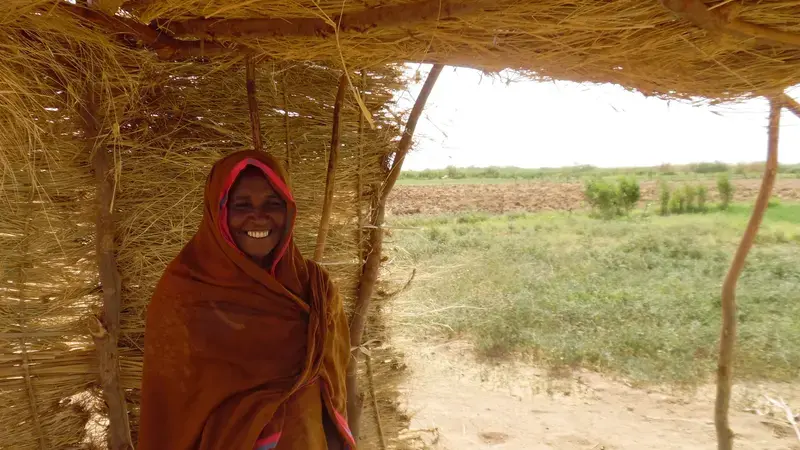Reducing gender inequity in Sudan’s wheat-growing regions

A wheat initiative in Sudan is strengthening the decision-making power of rural women and raising their incomes - in one of the most gender inequitable countries in the world. Lessons learned here could benefit millions of women worldwide.
Gender inequality is a recurring feature of many agricultural production systems across the dry areas of the developing world. Women farmers often lack access to credit, land, and other inputs. The result: the limited adoption of new innovations, low productivity and income gains, and a missed opportunity to enhance food security and prosperity at the household level.
Challenging the obstacles that rural women face is one of the key priorities of a wheat initiative managed by ICARDA and supported by the African Development Bank and the CGIAR Research Program on Wheat. This initiative is exploring obstacles in the wheat-growing regions of Sudan and designing a strategy that seeks to enhance women’s access to key inputs and services at both the community and institutional level.
Increasing incomes; reducing workloads
Results have been promising so far: participating women have seen an increase in their incomes; a reduction in workload – as a result of mechanization and improved access to key inputs such as pesticides; and stronger decision-making power through participation in trainings and field days, and enhanced access to microcredit - which has provided more sustained control over income-related activities.
Lessons learned: a gender strategy for the dry areas?
Research in four states (Gezira, River Nile and Northern) helped identify a number of steps that similar initiatives elsewhere can apply to enhance women’s integration. The project employed context-specific interventions related to grain growing, technology demonstration, value addition, and microcredit provision. Women’s involvement was often secured by gaining the trust and approval of male kin, a strategic approach which advocated for women’s involvement as something beneficial for the whole family.
Other key recommendations include: extending credit to women farmers – so they can purchase inputs, extend their farmlands, and move into commercial farming; providing access to markets so women can sell value-added products and become more entrepreneurial; and closely monitoring the progress of women farmers alongside their male counterparts.
This research was supported by the African Development Bank and the CGIAR Research Program on Wheat as part of the project ‘Support to Agricultural Research for Development of Strategic Crops in Africa (SARD-SC).’
The article is based on an ICARDA Working Paper: ‘Gender Roles in the Wheat Production of Sudan: Strengthening the Participation of Women.’
Author: Dina Najjar, Associate Social and Gender Scientist (ICARDA).
